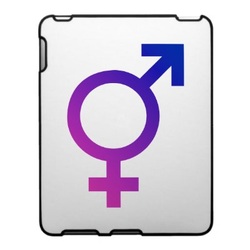
Yesterday, the House of Commons passed a law adding ‘gender identity’ to the list of protected grounds under the Canadian Human Rights Act and the Criminal Code.
NDP MP Randall Garrison introduced the legislation as a private member’s bill. In his version, the words ‘gender identity and gender expression’ would have been added to both laws.
But in the process of getting the law passed, compromises were made. The law now extends only to ‘gender identity’, and that term (unlike other prohibited grounds) is defined. The definition says “gender identity” means, in respect of an individual, the individual’s deeply felt internal and individual experience of gender, which may or may not correspond with the sex that the individual was assigned at birth.
The result of the amendments is two fold. Though trans people have been consistently successful complaining about discrimination under the Canadian Human Rights Act on the grounds of ‘sex’, the addition of this new ground makes it visible to everyone that trans people are protected. That is an important public education function.
The second protection for trans people is in the ‘hate crimes’ section of the Criminal Code. That section provides for increased sentencing where it can be shown that a crime was motivated by bias, prejudice or hatred against an identifiable group. ‘Gender identity’, defined in the same way as in the Canadian Human Rights Act, has been added to the list.
The change to the Criminal Code is important, but applying it is sometimes a problem, since assailants do not necessarily shout “I am beating you up because of your gender identity!” Unless there is some evidence that that was the motive, courts have not used the sentencing provisions much.
The bill will not take effect until it is considered by the Senate (who can amend it) and given royal assent.
You can find the full bill at http://www.parl.gc.ca/HousePublications/Publication.aspx?Language=E&Mode=1&DocId=6053237
 RSS Feed
RSS Feed
